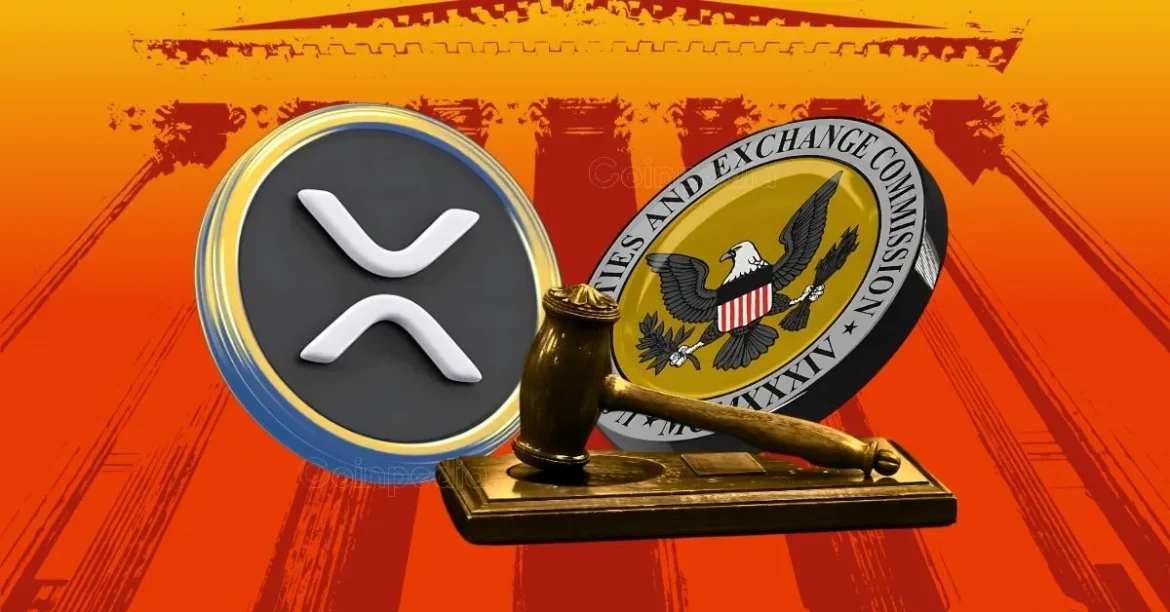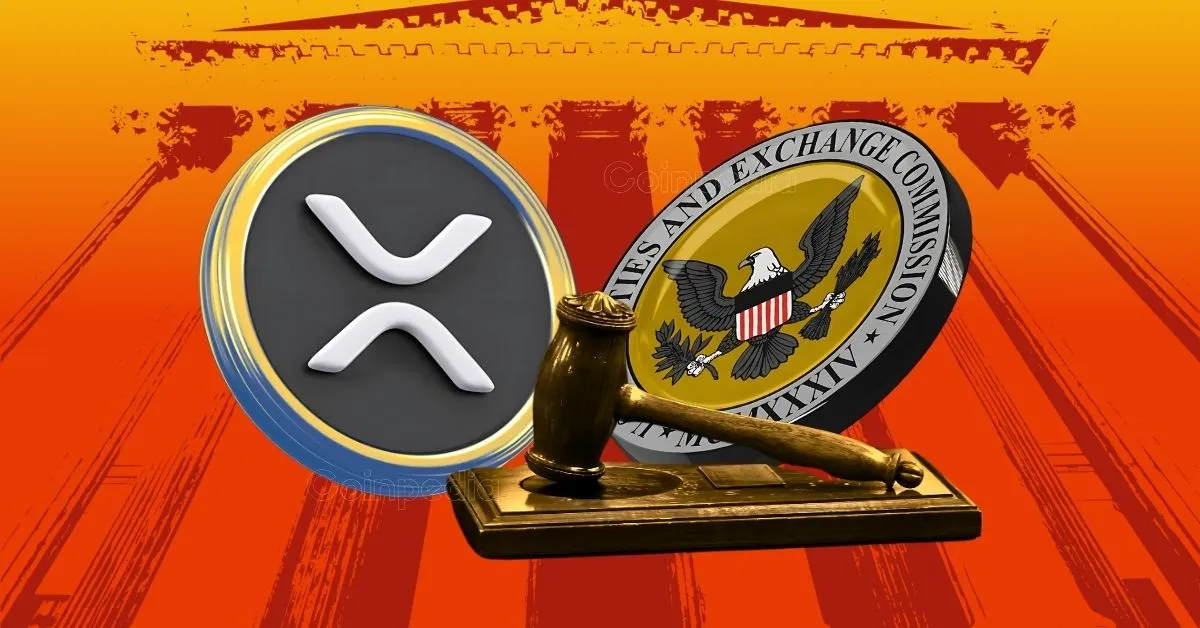The Resolution of SEC vs. Ripple: A New Dawn for XRP and Crypto Regulation
Introduction: A Legal Battle That Redefined Crypto
The legal saga between Ripple Labs and the U.S. Securities and Exchange Commission (SEC) has been a defining moment for the cryptocurrency industry. This high-stakes battle, which began in December 2020, has had profound implications for XRP, Ripple’s native token, and the broader digital asset market. The lawsuit, which alleged that Ripple’s sale of XRP constituted an unregistered securities offering, has finally reached a resolution. This resolution not only marks the end of a contentious chapter but also sets a precedent for future crypto regulation in the United States.
The Core of the Conflict: Securities or Utility?
At the heart of the dispute was the classification of XRP. The SEC argued that XRP should be classified as a security, subject to registration requirements under U.S. law. This classification would mean that Ripple’s sale of XRP was an unregistered securities offering, violating securities laws. The SEC’s position was based on the argument that XRP investors had a reasonable expectation of profit derived from Ripple’s efforts, a key factor in determining whether an asset is a security.
Ripple, however, maintained that XRP is a virtual currency with utility, designed to facilitate faster and cheaper cross-border payments. The company argued that XRP holders do not have the same rights as shareholders in a traditional company, such as voting rights or a claim on profits. Ripple also contended that applying securities laws to XRP would stifle innovation and hinder the growth of the cryptocurrency industry.
Key Milestones: A Legal Journey with Far-Reaching Implications
The legal battle between Ripple and the SEC was marked by several significant milestones, each influencing the trajectory of the case and the perception of XRP within the market.
The Initial Lawsuit and Market Reaction
The SEC’s initial lawsuit in December 2020 sent shockwaves through the crypto community. Major cryptocurrency exchanges, including Coinbase and Kraken, responded by delisting XRP, effectively cutting off access for many U.S. investors. The price of XRP plummeted, and Ripple’s reputation suffered a blow. The lawsuit also raised questions about the regulatory status of other cryptocurrencies, creating uncertainty in the market.
The Hinman Documents: A Turning Point
A crucial turning point came with the release of the “Hinman documents.” These documents pertained to a 2018 speech by former SEC Director of Corporation Finance, William Hinman, in which he stated that Ether (ETH), the native cryptocurrency of the Ethereum network, was not a security. Ripple argued that Hinman’s analysis of Ether’s decentralized nature and utility should also apply to XRP, undermining the SEC’s claim that XRP was an unregistered security. The release of these documents was seen as a significant victory for Ripple, as it highlighted inconsistencies in the SEC’s approach to regulating cryptocurrencies.
The Court’s Mixed Ruling: Clarity Amidst Uncertainty
In July 2023, the court issued a mixed ruling, stating that XRP was not a security when sold on public exchanges to retail investors but could be considered a security when sold directly to institutional investors. This ruling was seen as a partial victory for Ripple, as it clarified the regulatory status of XRP in certain contexts. However, the ruling also left some questions unanswered, particularly regarding the classification of XRP in other scenarios.
The Impending Resolution: Settlement and Future Implications
Recent reports indicate that Ripple and the SEC have reached a settlement agreement, signaling a potential end to the long-running legal dispute. Key aspects of the settlement include:
Financial Penalties and Restrictions
Ripple will pay a $50 million fine to the SEC and relinquish $75 million in previously held funds, totaling a $125 million penalty. Additionally, a permanent injunction has been issued against Ripple, restricting certain activities related to XRP sales to institutional investors. This injunction is seen as a significant concession by Ripple, as it limits the company’s ability to engage in certain business activities.
Dropping Appeals: A Mutual Decision
Both Ripple and the SEC have agreed to drop their respective appeals, solidifying the terms of the settlement. This mutual decision is seen as a sign of a willingness to move forward and avoid further legal battles. It also suggests that both parties recognize the importance of regulatory clarity for the broader cryptocurrency market.
Impact on XRP and the Crypto Market: A Surge of Optimism
The settlement between Ripple and the SEC has been met with widespread optimism within the cryptocurrency market. XRP has experienced a notable price surge, reflecting renewed investor confidence. The resolution of the lawsuit could pave the way for major players to re-list XRP on their platforms, increasing its accessibility and liquidity.
Market Reaction and Investor Sentiment
The market reaction to the settlement has been overwhelmingly positive. XRP’s price has surged, and trading volumes have increased significantly. This surge in price and trading activity is a clear indication of renewed investor confidence in XRP and the broader cryptocurrency market. The settlement has also sparked discussions about the potential for other cryptocurrencies to benefit from increased regulatory clarity.
Re-Listing Prospects: A Boost for XRP
The resolution of the lawsuit could pave the way for major cryptocurrency exchanges to re-list XRP. This re-listing would increase XRP’s accessibility and liquidity, potentially driving further price appreciation. The prospect of re-listing has already sparked discussions among major exchanges, with some indicating a willingness to re-list XRP once the legal uncertainty has been resolved.
Regulatory Clarity: A Precedent for the Future
The Ripple case has far-reaching implications for the broader crypto regulatory landscape in the United States. The outcome could set a precedent for how digital assets are classified and regulated, providing much-needed clarity for other cryptocurrency projects. The SEC’s decision to settle suggests a potential shift toward a more crypto-friendly approach to regulation.
Project Crypto: Fostering Innovation
The resolution of the case aligns with initiatives like “Project Crypto,” which seeks to foster innovation in the cryptocurrency space within the United States. By providing regulatory clarity, the settlement could encourage further investment and development in the digital asset industry. This initiative is seen as a positive step toward creating a more supportive regulatory environment for cryptocurrencies.
Potential Regulatory Shifts: A More Nuanced Approach
The SEC’s decision to drop the case against Ripple indicates a potential shift in the regulatory landscape. It suggests a more nuanced approach to regulating cryptocurrencies, taking into account their specific use cases and characteristics. This could lead to the development of tailored regulatory frameworks that promote innovation while protecting investors. The shift towards a more nuanced approach is seen as a positive development for the cryptocurrency industry.
Criticisms and Remaining Concerns: A Word of Caution
Despite the positive developments, some concerns remain. Critics argue that the settlement does not fully address the issue of XRP’s initial distribution and the potential for future regulatory scrutiny. The permanent injunction against Ripple could also limit its ability to engage in certain business activities.
Unanswered Questions: Initial Distribution and Future Scrutiny
The settlement does not fully address the issue of XRP’s initial distribution, which was a key factor in the SEC’s case. This lack of clarity could leave the door open for future regulatory scrutiny, particularly if the SEC decides to take a more aggressive stance in the future. The potential for future regulatory scrutiny is a concern for both Ripple and the broader cryptocurrency market.
Limitations on Ripple’s Business Activities
The permanent injunction against Ripple is seen as a significant concession by the company. This injunction limits Ripple’s ability to engage in certain business activities, particularly those related to XRP sales to institutional investors. The limitations imposed by the injunction could have a significant impact on Ripple’s business model and its ability to compete in the cryptocurrency market.
Conclusion: A Cautiously Optimistic Outlook
The resolution of the SEC vs. Ripple case marks a significant milestone in the evolution of cryptocurrency regulation in the United States. While the settlement does not provide a complete and final answer to all outstanding questions, it represents a step in the right direction. The outcome provides much-needed clarity for XRP and could pave the way for a more crypto-friendly regulatory environment.
A New Chapter for XRP
With the legal battle seemingly behind it, Ripple can now focus on its core business of providing cross-border payment solutions using XRP. The company has ambitious expansion plans and the settlement could help unlock its full potential. The future of XRP looks brighter than it has in years, but a cautious approach is advisable as the market continues to evolve. The resolution of the SEC vs. Ripple case is a significant development for the cryptocurrency industry, and its implications will be felt for years to come.





